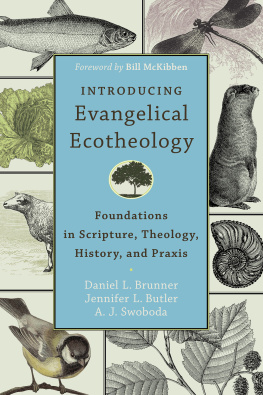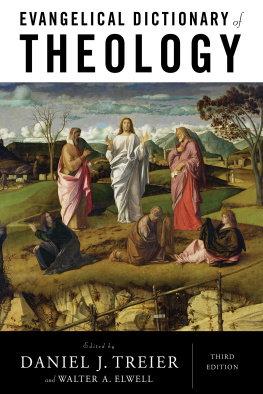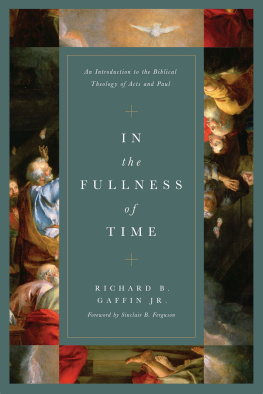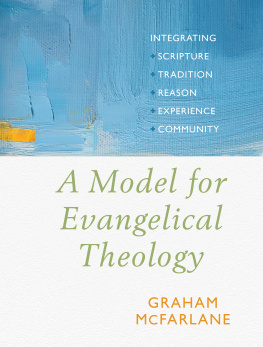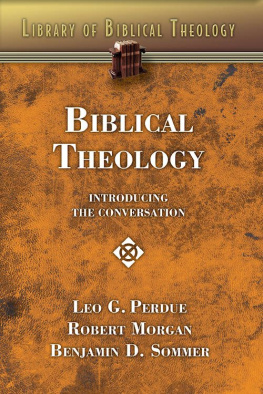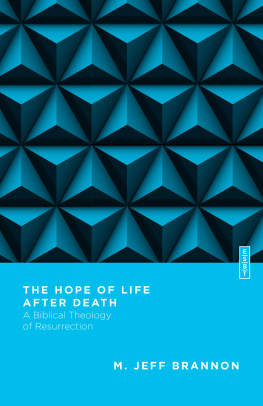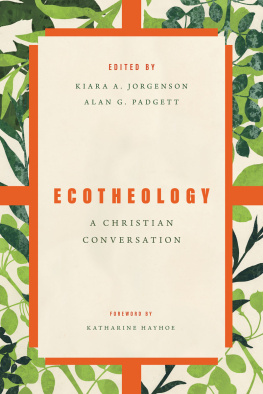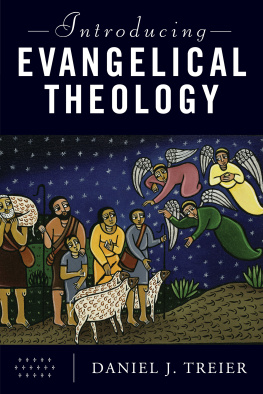
2014 by Daniel L. Brunner, Jennifer L. Butler, and A. J. Swoboda
Published by Baker Academic
a division of Baker Publishing Group
P.O. Box 6287, Grand Rapids, MI 49516-6287
www.bakeracademic.com
Ebook edition created 2014
All rights reserved. No part of this publication may be reproduced, stored in a retrieval system, or transmitted in any form or by any meansfor example, electronic, photocopy, recordingwithout the prior written permission of the publisher. The only exception is brief quotations in printed reviews.
Library of Congress Cataloging-in-Publication Data is on file at the Library of Congress, Washington, DC.
ISBN 978-1-4412-2142-1
Unless otherwise indicated, Scripture quotations are from the New Revised Standard Version of the Bible, copyright 1989, by the Division of Christian Education of the National Council of the Churches of Christ in the United States of America. Used by permission. All rights reserved.
Scripture quotations labeled Message are from The Message by Eugene H. Peterson, copyright 1993, 1994, 1995, 2000, 2001, 2002. Used by permission of NavPress Publishing Group. All rights reserved.
Scripture quotations labeled NASB are from the New American Standard Bible, copyright 1960, 1962, 1963, 1968, 1971, 1972, 1973, 1975, 1977, 1995 by The Lockman Foundation. Used by permission.
Scripture quotations labeled NIV are from the Holy Bible, New International Version. NIV. Copyright 1973, 1978, 1984, 2011 by Biblica, Inc. Used by permission of Zondervan. All rights reserved worldwide. www.zondervan.com
Scripture quotations labeled NLT are from the Holy Bible , New Living Translation, copyright 1996, 2004, 2007 by Tyndale House Foundation. Used by permission of Tyndale House Publishers, Inc., Carol Stream, Illinois 60188. All rights reserved.
As it did years ago, the Church is undergoing another Great Awakening. In this landmark volume, Brunner, Butler, and Swoboda have provided the theological resources, inspiration, and vision for a Green Awakening. Weaving together personal stories, biblical readings, theological insights, confessional backgrounds, and practical advice, this co-authored work will prove immensely useful for Christians of all theological persuasions.
William P. Brown , Columbia Theological Seminary; author of The Seven Pillars of Creation: The Bible, Science, and the Ecology of Wonder
I believe Introducing Evangelical Ecotheology is the most carefully constructed and comprehensive work of its kind to date. If you have been waiting for a text centering ecotheology in solidly biblical and historic Christianity, the wait is over.
Randy Woodley , George Fox Seminary; author of Shalom and the Community of Creation: An Indigenous Vision
Introducing Evangelical Ecotheology is a highly readable and insightful exploration of new evangelical thinking about the task of ecotheology, that is, Christian theology that re-thinks the Bible and church tradition with constant reference to Gods good gift of creation. Written by three leading figures in this emerging field of study, this book features illuminating sidebars that address the authors disagreements about difficult topics in contemporary ecotheology including the role of inclusive language for God, the question of evolution, and the problem of stewardship language for a Christian environmental ethic. An excellent volume for college students, church groups, and general readers alike.
Mark Wallace , Swarthmore College; author of Green Christianity
The interlocking ecological crises stalking us confront Christians with a stark choice: denial or discipleship. This engaging and thoughtful collaboration offers a wide-spectrum overview of the biblical, theological, historical, scientific, and practical issues at stake. Butler, Brunner, and Swoboda have established a new baseline for committed evangelical ecotheology and praxis.
Ched Myers , Bartimaeus Cooperative Ministries
To Kenley, Dylan, Elliot, and Moses
Contents
Foreword
I ve been following the progress of our struggles to come to terms with our environmental struggles most of my lifewhen I was still in my 20s I wrote the first account for a general audience of what we then called the greenhouse effect and now call climate change. Along the way Ive gotten to know a great many scientists who are using the gifts God gave them to understand our predicament; they are curious, careful, and persistent, and its been a joy to make their acquaintance.
Ive also had the pleasure of accompanying many people on various parts of their individual faith journeys, from hiking with orthodox rabbis as they made what for many was their first ascent of a mountain, to visiting with the Orthodox patriarch Bartholomew in his Turkish redoubt. A Methodist myself, Ive gotten to know many Christians as they work to carry out the command that we steward the earth, and that we love our neighbors.
So far, it must be said, were not doing as much as we need to in order to fulfill these commandments. To give just one of a thousand examples, ocean water, absorbing carbon from the atmosphere, is now 30 percent more acidic than it was just four decades ago. That is to say, our habits and lifestyles are dramatically altering the face of the waters described in the second verse of Genesisand with it the ability of those ocean waters to support the small creatures at the base of the marine food chain. One could make much the same argument about Arctic ice, about spreading deserts, about deepening storms.
Changing these trends is not easy, but also not impossible. Human ingenuity has provided us with answers: solar panels and windmills, say, to replace coal and gas and oil. But the transition wont be seamless or simple, and it will require changes in our expectations and demands on the earth. Thats one reason that religious people and theological thinkers will play such an important role: they are specialists in human transformation, and in building communities that can cope withand delight inchange for the better.
I can remember, in my days as a Sunday school teacher, the pleasure of taking the kids on hikes and watching them exult in the miraculous abundance that God has provided around us. For us adults, that exultation is shadowed by the knowledge that it will take care and commitment to safeguard Creation. But that responsibility is our glory: the commands to keep the beautiful place and to exercise dominion over this gift weve been given were our original charges after all!
Bill McKibben
May 2014


Introduction
The Stories behind the Story
N athan and I (Dan) pulled into the Mbanhela community in the Gaza province of Mozambique and were greeted by the high-spirited singing of six women who form the livestock association of that small community. A Christian relief and development organization, of which Nathan is the country director, provided funds for a large chicken coop, feed, supplies, and 300 chickens for the Mbanhela community. In addition, it furnished training in basic animal husbandry and marketing. Every two months the community starts a new cycle with 320 chicks. Raising chickens for income empowers that community and helps it toward health and sustainability. But the goal of raising livestock is not just for community development. The Mbanhela community decided that God had called them to provide a home for twenty-nine orphans and other vulnerable children. (One woman, Pastor Ramira, said to us matter-of-factly, God tells us to care for the orphans and widows, and so we do.) Profits from the sale of the chickens help those children attend school and buy books and school supplies.
Next page
